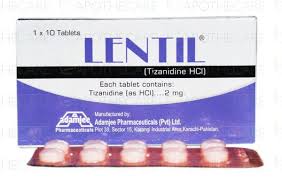Description
Epitoin Suspension contains Phenytoin, an anti-epileptic agent used to help control certain types of seizures. It works by stabilizing electrical activity in the brain to reduce abnormal nerve impulses.
Uses
-
Management of grand mal (tonic-clonic) seizures.
-
Control of psychomotor seizures.
Dosage
To be determined by a physician based on age, weight, and seizure control requirements.
In Case of Overdose
Overdose may cause uncoordinated movements, confusion, low blood pressure, or rapid eye movements. Seek emergency medical attention.
Missed Dose
Take when remembered unless near next scheduled dose. Avoid doubling.
How to Use
Shake well before use. Measure using a proper dosing spoon or syringe. Can be taken with or without food.
When Not to Use
Avoid in individuals with:
-
Sinus bradycardia.
-
Sinoatrial block.
-
Second or third-degree heart block.
Side Effects
Possible effects include:
-
Stomach discomfort.
-
Sleep disturbance.
-
Allergic skin reactions.
-
Increased facial or body hair growth (hirsutism).
Precautions & Warnings
Use cautiously in:
-
Liver impairment.
-
Vitamin D deficiency (supplementation may be considered under supervision).
-
Long-term use — discontinuation should be gradual.
Drug Interactions
Phenytoin is known to interact with many medications, including:
-
Other anticonvulsants.
-
Certain antibiotics.
-
Blood thinners.
-
Oral contraceptives.
Interaction assessment should be performed by a healthcare provider.
Food Interactions
Avoid alcohol, as it may affect drug levels and increase side effects. Take consistently with or without food to maintain steady absorption.
Storage/Disposal
Store at room temperature, away from sunlight and moisture. Keep tightly closed. Dispose as per local pharmaceutical guidelines.
Laboratory Screening
Long-term use may require:
-
Liver function tests.
-
Blood level monitoring of Phenytoin.
-
Vitamin D and calcium assessment.
Doctor Review
Phenytoin remains a longtime option in seizure management. While effective in many cases, it requires careful monitoring due to its narrow safety range and potential for interaction with other medicines. Dose stability and patient-specific response are key considerations in clinical use.
Disclaimer
This document is for informational purposes only and does not serve as prescription guidance or medical advice. Therapy decisions should be made by qualified healthcare professionals.












Reviews
There are no reviews yet.